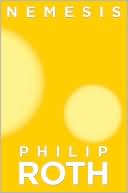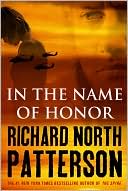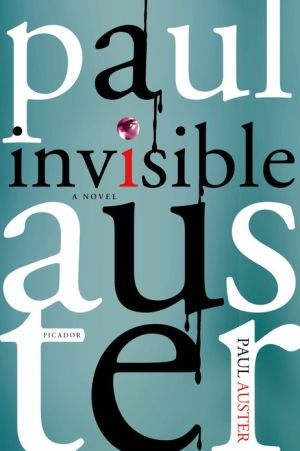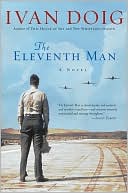Coventry
“Elegant . . . illuminates the impact of war on ordinary people . . . an elegy and a celebration.”—Ann Hood, author of The Knitting Circle\ On the evening of November 14, 1940, Harriet Marsh stands on the roof of the historic Coventry cathedral and marvels at the frost glittering beneath a full moon. But it is a bomber’s moon, and the Luftwaffe is coming to unleash destruction on the city. For Harriet; for the young fire watcher, Jeremy, standing beside her; and for his artist mother, Maeve,...
Search in google:
“Elegant . . . illuminates the impact of war on ordinary people . . . an elegy and a celebration.”—Ann Hood, author of The Knitting CirclePublishers WeeklyHumphreys's lethargic latest depicts the intertwining lives of two British women during the world wars. Harriet and Maeve meet on the streets of Coventry, England, in 1914. Both are of troubled mind: Harriet's husband has just left for the battlegrounds of France, and Maeve can't shake a deep sense of loneliness. The women share laughs on a bus ride, but afterwards their lives continue on different paths. Harriet's husband, Owen, goes missing (and is presumed killed) in action, and Harriet spends the next two decades mourning his loss. Maeve becomes pregnant out of wedlock and works a string of odd jobs to raise her son, Jeremy. In the chaos of the German bombing of Coventry in 1940, Harriet befriends Jeremy, who, at 22, stirs intense memories of Owen. Together, they search the town for Jeremy's mother and forge an intense bond. Humphreys's characters are given to poetic tendencies that occasionally yield interesting insights on the nature of loss and change, though the cast tends toward the indistinct and the narrative feels too in service of the historical record. (Feb.)Copyright © Reed Business Information, a division of Reed Elsevier Inc. All rights reserved.
\ BooklistPacks a tremendous emotional punch . . . adeptly depicts how the random intersection of lives can impact destiny.\ \ \ \ \ Publishers WeeklyHumphreys's lethargic latest depicts the intertwining lives of two British women during the world wars. Harriet and Maeve meet on the streets of Coventry, England, in 1914. Both are of troubled mind: Harriet's husband has just left for the battlegrounds of France, and Maeve can't shake a deep sense of loneliness. The women share laughs on a bus ride, but afterwards their lives continue on different paths. Harriet's husband, Owen, goes missing (and is presumed killed) in action, and Harriet spends the next two decades mourning his loss. Maeve becomes pregnant out of wedlock and works a string of odd jobs to raise her son, Jeremy. In the chaos of the German bombing of Coventry in 1940, Harriet befriends Jeremy, who, at 22, stirs intense memories of Owen. Together, they search the town for Jeremy's mother and forge an intense bond. Humphreys's characters are given to poetic tendencies that occasionally yield interesting insights on the nature of loss and change, though the cast tends toward the indistinct and the narrative feels too in service of the historical record. (Feb.)\ Copyright © Reed Business Information, a division of Reed Elsevier Inc. All rights reserved.\ \ \ Library JournalDuring the Battle of Britain, Coventry was the only English city to lose its cathedral in the German bombings. Canadian poet and novelist Humphreys (A Jealous Ghost) here relates how that tragic event affected the lives of her three protagonists. Middle-aged and widowed Harriet Marsh stands in for a friend as a fire warden on the cathedral's roof that fateful night of November 14, 1940, as the planes of the Luftwaffe head for Coventry to destroy its industrial establishment and much of the rest of the city. There she encounters Jeremy Fisher, the young son of a woman she met years ago after the outbreak of the Great War, in which Harriet lost her husband. Jeremy's artist mom, Maeve, spends the evening wandering around the besieged city hoping to find her son. Humphreys's account is presented with a poet's attention to detail and le mot juste, but she spares us none of the horrors of war. A slight but compelling volume recommended for academic and public libraries.\ —Edward Cone\ \ \ \ \ \ Kirkus ReviewsThe underappreciated Humphreys (Wild Dogs, 2005, etc.) offers a journey through the dark night of the soul that was the November 14, 1940, bombing of Coventry. Middle-aged Harriet is serving as firewatcher on the roof of Coventry Cathedral when the German bombers arrive. The church in flames, Harriet finds herself wandering the burning city with another firewatcher, a young man named Jeremy who recently moved to Coventry for its wartime jobs with his mother Maeve. Harriet, whose husband died at Ypres only months after their marriage in 1914, does not realize that Maeve is the same young woman with whom she shared her first ride on a doubledecker bus the day she saw her husband off to war. The women felt a bond but remained nameless strangers. Since then Harriet has stayed in Coventry as a solitary widow, while Maeve, who never married, has led a mildly nomadic life with Jeremy as her emotional center. When the bombs fall, Maeve is in a pub. She soon leaves the safety of her shelter to return home and wait for Jeremy. Meanwhile, Jeremy and Harriet encounter scenes both horrific and surreal-dead bodies of children, a burning river of melted butter. They find Harriet's house destroyed. By the time they reach Maeve and Jeremy's house, Maeve has already been pulled into the exodus out of the city. The note she's left behind for Jeremy gets lost in the kitchen debris. Harriet and Jeremy find a moment of respite in the house and despite their age differences make brief, exhausted love. Before Jeremy returns to the streets, he lends Maeve's coat to Harriet. Joining the exodus, Harriet runs across Maeve, who recognizes her coat, and they unite to look for Jeremy. By the time they learn Jeremy'sfate, they have recalled their first meeting and formed a new, lasting bond. With stark, precise poetry, Humphreys builds a palpable, almost unbearable sense of inevitability and loss that echoes both John Hersey's Hiroshima and Ian McEwan's On Chesil Beach.\ \








